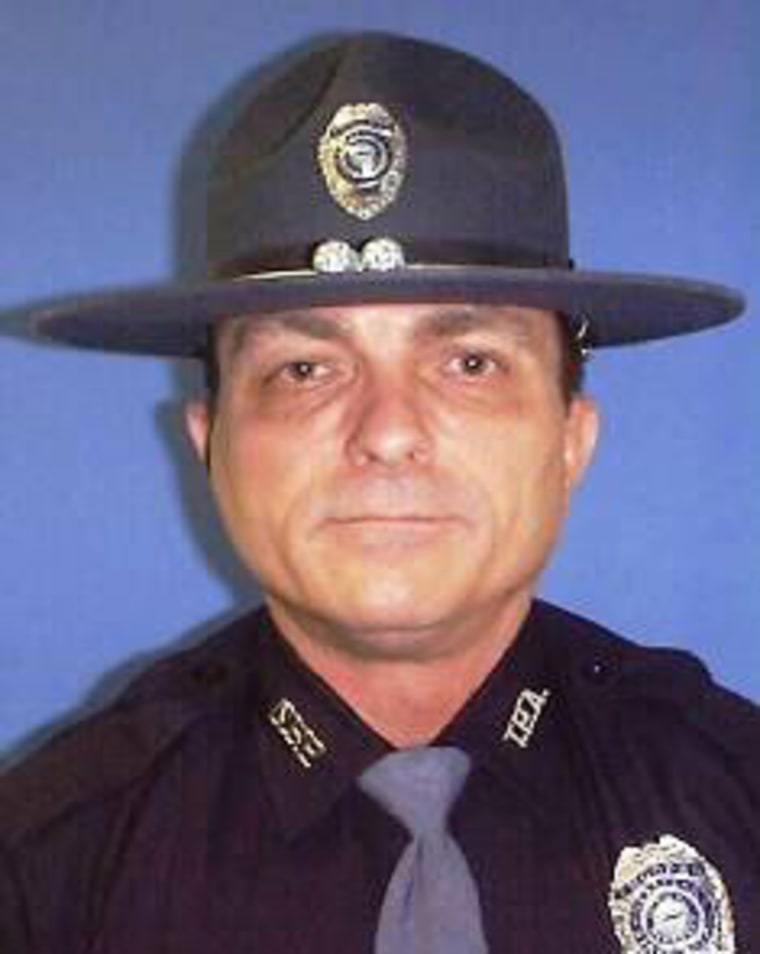The Nebraska Supreme Court on Friday upheld the firing of a State Patrol trooper for his ties to the Ku Klux Klan.
Justice John Gerrard wrote that Robert Henderson voluntarily associated with an organization that uses violence and terror to oppose the state's founding principles of equality and tolerance.
Henderson, a trooper for 18 years, was dismissed in 2006 after the patrol discovered he had joined a racist group. He told an investigator he joined the Knights Party — which has described itself as the most active Klan organization in the United States — in June 2004.
An arbitrator said Henderson's firing violated his First Amendment rights, among other things, but Lancaster County District Judge Jeffre Cheuvront overturned that decision.
Henderson's attorney, Vincent Valentino, had argued to the high court that arbitrators, not judges, have the final say. He said Friday that an appeal to the U.S. Supreme Court was possible, based on "everything from due process to freedom of speech and freedom of association." A due process argument, he added, would refer to violation of Henderson's rights under the union contract.
Gerrard wrote that while it's not the role of a court, generally, to set aside an arbitrator's decision, it is permissible for a court to "refuse to enforce an arbitration award that is contrary to a public policy that is explicit, well defined, and dominant."
Justice Kenneth Stephan wrote in a dissenting opinion that the courts overstepped their bounds by overturning the arbitrator. Stephan said Henderson had kept his beliefs well hidden while on the job and there was no evidence they interfered with his impartial enforcement of the law.
Badge and robe
But Gerrard noted that the state's admission to the Union in 1867, two years after the Civil War ended, was dependent on a "fundamental public policy" that Nebraska would adhere to the principle that "laws should be enforced without regard to race."
"It is beyond dispute that (Henderson) willingly joined the Knights Party, knowing that he was effectively joining the Ku Klux Klan," Gerrard wrote. "In joining, he endorsed a point of view that is completely antithetical to the principles of Nebraska law that he was bound by oath to enforce."
To associate with the KKK is to associate with a legacy of hatred, bigotry, violence and terror, and keeping Henderson in the force would reduce public confidence in law enforcement, Gerrard wrote.
"One cannot simultaneously wear the badge of the Nebraska State Patrol and the robe of a Klansman without degrading what that badge represents when worn by any officer."
In his ruling, arbitrator Paul Caffera ordered the patrol to reinstate Henderson within 60 days and pay him his back wages. He said Henderson was entitled to his First Amendment rights of free speech and that the state violated the troopers' contract.
But the state appealed that decision and won in Lancaster County District Court.
Henderson told an investigator that he joined the Knights Party to vent his frustrations after his wife left him for a Hispanic man. Henderson posted four messages to the Knights' Web site, according to the investigator's report.
Valentino said his client now works part-time for private security firms.
